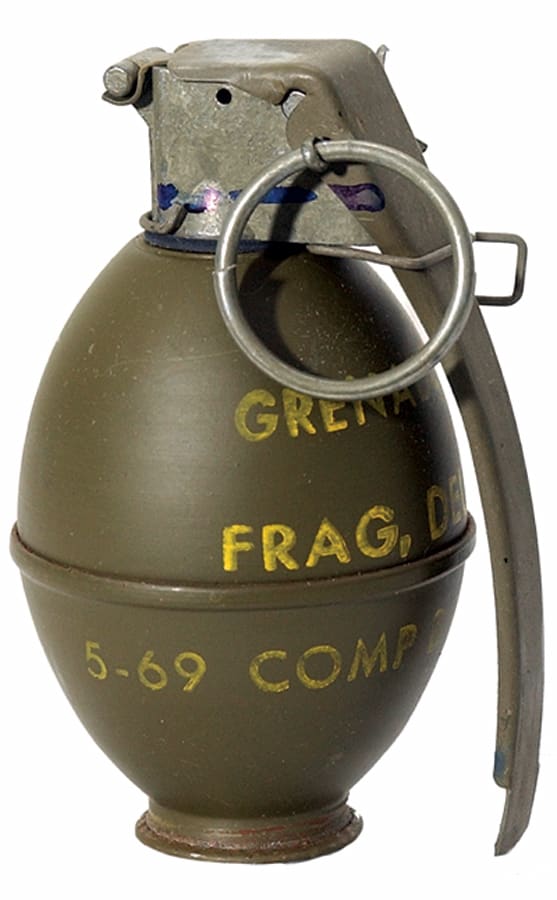Land of My Birth – The country was still young, and the security force in the Knesset was not well organized yet. This is the only reasonable way to explain how in the fall of 5718 (1957) a man named Moshe Duek, 26 years old, was able to sneak by the guards and enter the main hall of the Knesset with three IDF hand grenades. He managed to throw only one of them towards the seats of the government ministers, but this was enough to cause serious injuries to the Minister of Welfare and Religions, Chaim Shapiro, and to lightly hurt Prime Minister David Ben Gurion, Foreign Minister Golda Meir, and Transportation Minister Moshe Carmel.
The public was greatly shocked, out of fear that this action was a result of political or religious fanaticism. But when the attacker was caught, it became clear that Moshe Duek was “merely” an unstable person who felt personal distress and who was angry at the Jewish Agency for not helping him as he thought they should.
The day after the attack, a medical summary was published:
“David Ben Gurion: Some small pieces of shrapnel which are not dangerous remain in his hands and in one foot, the rest have been removed. He is recovering well, and in two or three days he will leave the hospital. Moshe Carmel: His right arm is broken, and his hand has been put into a cast. He will be able return to his normal routine in a few days. Golda Meir: She was released from the hospital after receiving treatment. Moshe Shapiro: Successful operations were performed on his stomach and his head, removing all of the shrapnel. He is recovering after the operation in a normal way. The danger to him is not over, but his situation is steadily improving. What he needs most is a full recovery.”
Chief Rabbis Herzog and Nissim gave the Minister an additional name, asking the people to pray for the life of Chaim Moshe Ben Shoshana Rosa. The office of the Chief Rabbi of Jerusalem, Tzvi Pesach Frank, published a declaration in the city: “Ask for mercy! The inhabitants of the holy city of Jerusalem are asked to pray and to ask for mercy for our friend the minister… for good health for a speedy recovery.” The rabbi of Ponovitz recited Tehillim with his students. The Rabbi of Belz sent a mission of his followers with a blessing and a selection of healing herbs, and the Rabbi of Gur also sent a special messenger wishing the minister well.
All the sectors of the Jewish community feared for the life of the minister and prayed for his full recovery. Many friends from Israel and from abroad closely followed the long and wearying path of his convalescence, during which he underwent five operations. People from all over the country crowded around the door of his hospital room, wanting to visit and encourage him, and the doctors finally asked to have a special guard posted so that he would be able to rest.
The day before Yom Kippur, the attacker Moshe Duek sent a letter of apology to Minister Shapiro:
“Today… on this awesome day when a man stands before his Creator, I also lift up my eyes to Our Father in Heaven… to admit my sins and the deeds which I did this year. And here is what I say: I have sinned and performed criminal acts, against man and G-d, and against Minister Shapiro… And Yom Kippur does not provide atonement… until a person asks to be forgiven. And that is what I am doing now…”
And the Minister replied:
“Since according to the law a person from Yisrael must forgive anybody who asks to be forgiven, I have forgiven you on Yom Kippur, and let the G-d of prayer forgive you for your sin, which is great indeed. With respect to the earthly courts… I have no authority to intervene in what they do…”
Source: S. Daniel, “Minister Shapiro: Portrait of a Religious Statesman,” among others. Reprinted with permission from Zomet Institute (www.zomet.org.il). Translated from the Hebrew by Moshe Goldberg. To subscribe to receive the complete version of Shabbat BeShabbato please write to dan@zomet.org.
The words of this author reflect his/her own opinions and do not necessarily represent the official position of the Orthodox Union.

